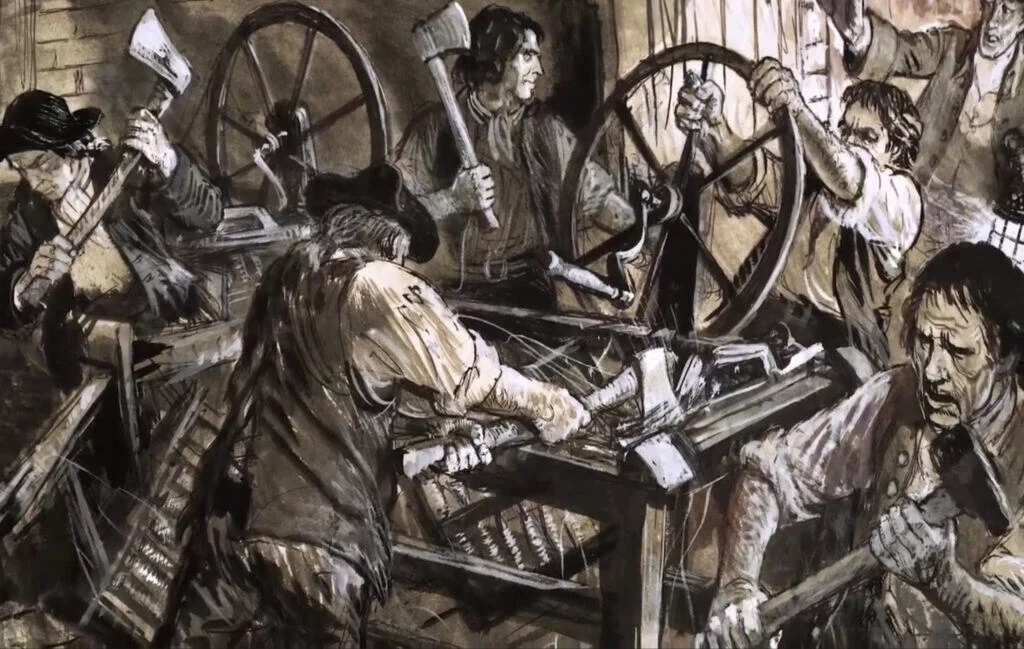In early 19th-century England, a group of skilled textile workers known as the Luddites waged a dramatic rebellion—not against progress, but against displacement. Between 1811 and 1816, they sabotaged machinery in mills and factories across the Midlands and northern England. Their name came from the possibly mythical figure Ned Ludd, symbolizing the working-class resistance. Far from being anti-technology, these artisans were protesting the way industrialization devalued their craft and livelihoods.
The Industrial Revolution brought mechanized looms and spinning frames that allowed unskilled laborers to replace skilled textile workers. For the Luddites, this wasn’t just an economic threat; it was a social one. They had trained for years to master their trade, and now machines rendered their skills obsolete overnight. Their destruction of factory equipment was a desperate cry for fairness, not a rejection of innovation. Their movement was met with harsh crackdowns, including mass arrests, executions, and transportation to penal colonies.
Today, the term “Luddite” is often used pejoratively to describe someone opposed to technology. But the original Luddites weren’t technophobes—they were early voices in the debate over automation and labor rights. In an age of artificial intelligence and job displacement, their story resonates anew. Understanding the Luddites as workers demanding ethical progress helps us reconsider how we approach technological change in our own time.










